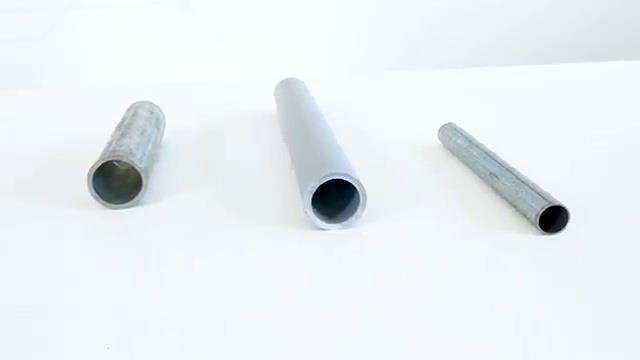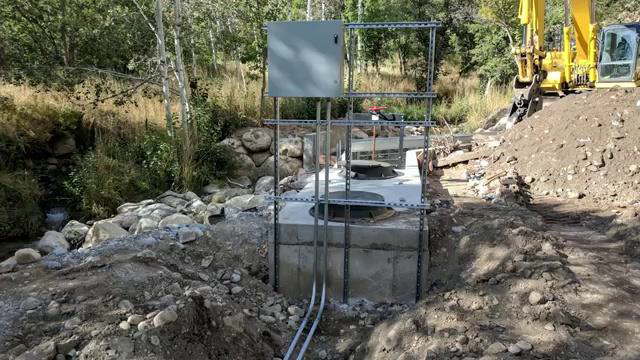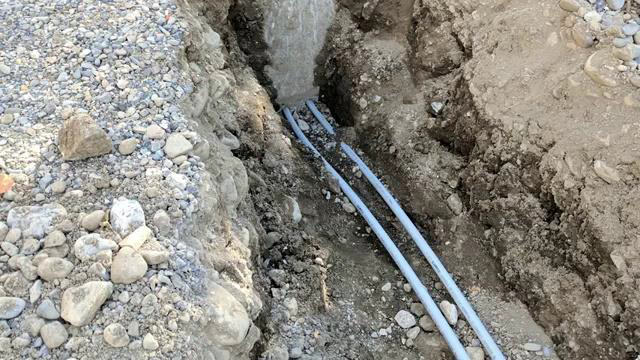Electrical_Conduit_Types_and_Uses.pdf
Electrical conduit is simply a tube that is used for electrical wires to pass through to provide protections to both the wire, and to any persons who might be close to that wire run.
Common types of electrical conduit:
Metal Electrical Conduit
- Rigid Metal Conduit (RMC) - Considered one of the most durable types of electrical conduit
- Electrical Metallic Tubing (EMT) - Much less expensive than RMC, much thinner walled, commonly used in commercial applications
- Galvanized Rigid Conduit (GRC)
- Intermediate Metal Conduit (IMC)
Nonmetal Electrical Conduit
- PVC - Lightest and easiest to use, commonly inexpensive, commonly used underground and embedded with concrete, not intended for areas that will be exposed to direct sunlight
- Fiberglass Reinforced Conduit
- Rigid Nonmetallic Tubing (RNT)
Transcript
[0m:4s] Hi I'm Josh Bloom, welcome to another video in the RSP Supply education series. If you find that these videos are helpful to you, it certainly helps us out if you could give us a big thumbs up and subscribe to our channel.
[0m:15s] In today's video, we want to talk to you about a common component commonly used by almost all electricians today:
[0m:23s] Electrical Conduit. More specifically, we want to discuss what electrical conduit is and why it is so widely used in the electrical industry.
[0m:32s] We will also look at some of the different types of electrical conduit that are most commonly used in industrial, commercial, and residential applications.
[0m:42s] Electrical conduit is simply a tube that is used for electrical wires to pass through to provide protection to both the wire and to any person who might be close to that wire run. It can be found in many different applications and also many different variations depending on the specific application it is being used in.



[1m:3s] Electrical code will often dictate when conduit must be used as well as what type of conduit for the various different applications you might be seeing used in.
[1m:14s] Let's look at some of the most common types of electrical conduit and where you might see each type is being used.
[1m:21s] First let's look at conduit that is made from metal as these are probably the most commonly used conduits that we see today.
[1m:29s] Rigid metal conduit or RMC is a very thick walled type of conduit, commonly steel that has been galvanized, but can also be found in aluminum.
[1m:41s] This is considered one of the most durable and rugged types of electrical conduit that is used today and is very common in industrial applications.
[1m:50s] In most cases, you will need to cut and thread this type of conduit which can require some special equipment. Another very common type of metal conduit is electrical metallic tubing, or EMT. No EMT is a much less expensive option in comparison to RMC.
[2m:11s] Also, EMT is a much more thin-walled conduit, not providing as much protection.
[2m:17s] It also is much lighter and easier to work with an RMC, but does not provide the same amount of protection.
[2m:23s] In most cases, Mt will not need to be threaded as it can be used with various different types of connection fittings which can make it very versatile. EMT is generally made of coated steel, although it can be found in aluminum. There are other types of metal conduit such as galvanized rigid conduit, or GRC, or intermediate metal conduit, IMC, but they are not as common in most applications. Now let's look at some non metal variations of electrical conduit. Much like with metal, there are many different types of non metal conduit, such as PVC, fiberglass reinforced Conduit, rigid nonmetallic tubing or RNT.
[3m:6s] There are also several types of flexible nonmetallic conduits that can be used in a variety of different applications.
[3m:12s] For the purpose of this video, we will focus on the most common type of nonmetallic conduit, which is PVC.
[3m:21s] PVC conduit is considered by most to be one of the lightest and most easy to use types of electrical conduit that we use today.
[3m:30s] Also, PVC conduit is typically found any lower cost than some of the other options. You can find it in several different wall thicknesses depending on the application.
[3m:40s] It is very common to see PVC conduit used in underground and embedded within concrete because if it's non corrosive characteristics.
[3m:50s] There are many different sizes and fittings that can be used, which makes it very versatile for many different applications.
[3m:57s] It is not intended for areas that will be exposed to direct sunlight, however, as this can degrade the material over time. For the most part, PVC is a great option for the majority of underground scenarios and is commonly used in industrial, commercial, and residential environments.
[4m:15s] As you can see, there are many different types of electrical conduit and many different use cases that they can each be found in.
[4m:22s] It is a tool that has allowed electricians to do their job more effectively while providing a more safe environment for both the wires in the conduit and the people around it.
[4m:33s] For a full line of industrial hardware and thousands of other products, please go to our website. For more information or other educational videos, go to RSPSupply.com, the Internet's top source for industrial hardware. Also, don't forget: like and subscribe.




